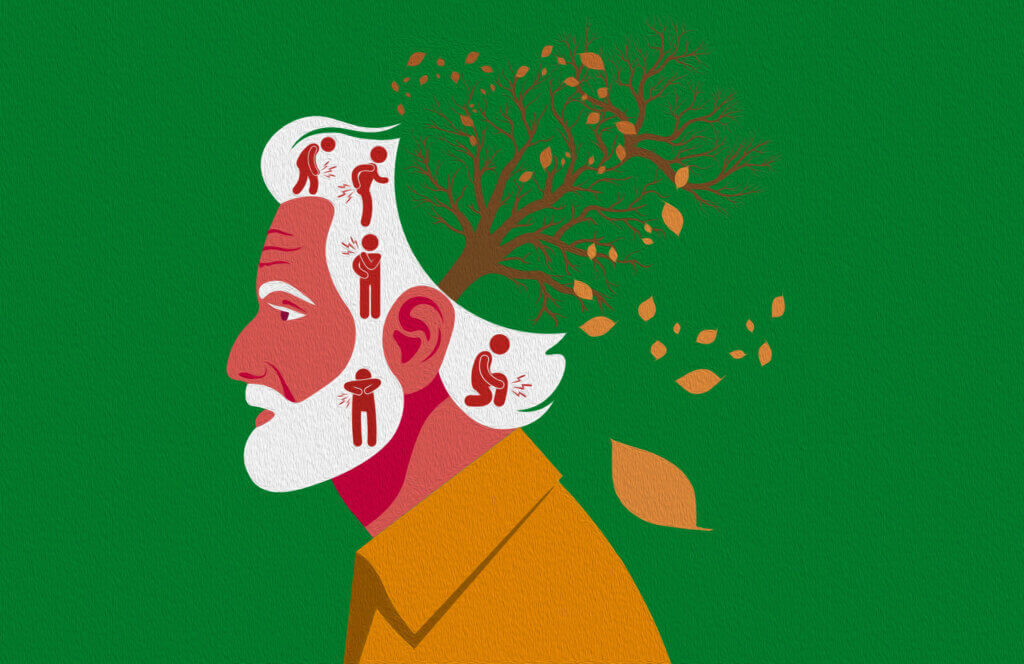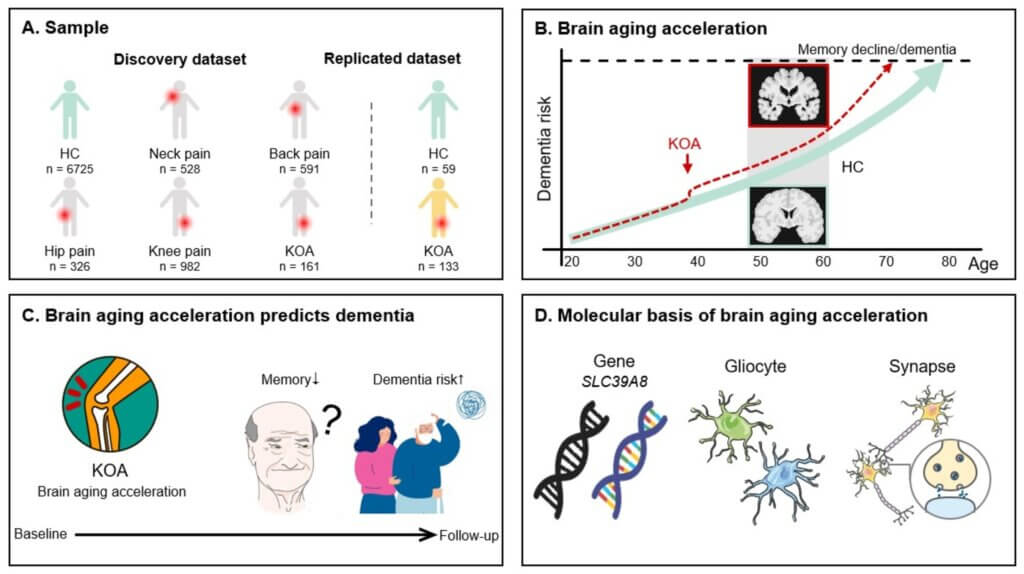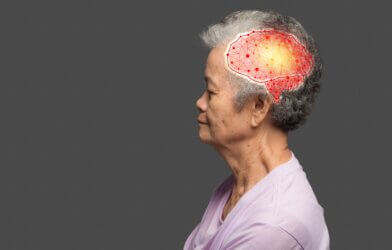Chronic pain is a debilitating condition that affects millions of people worldwide, impacting their quality of life and daily functioning. However, recent research suggests that the consequences of chronic pain may extend far beyond the physical realm, potentially accelerating the aging process in the brain.
The concerning new study, published in the journal Nature Mental Health, sheds light on the complex relationship between chronic musculoskeletal pain (CMP) and brain aging. Researchers from Chinese Academy of Sciences have identified a specific type of CMP that may be particularly detrimental to brain health: chronic knee pain, especially that resulting from knee osteoarthritis (KOA).
KOA is a common condition characterized by the gradual breakdown of cartilage in the knee joint, leading to pain, stiffness, and decreased mobility. While the physical symptoms of KOA are well-known, the potential impact on cognitive function and brain aging has remained largely unexplored until now.
To investigate this link, researchers analyzed structural MRI data from over 9,000 individuals, developing a sophisticated brain age model that allowed them to compare a patient’s brain age to their chronological age. The results were striking: those with KOA, identified from both the UK Biobank and additional replication datasets from the local community, exhibited significantly more rapid brain aging compared to healthy individuals.

This accelerated brain aging was particularly evident in regions of the brain crucial for cognitive function, such as the hippocampus, which plays a vital role in memory formation and learning.
“We not only revealed the specificity of accelerated brain aging in KOA patients, but importantly, we also provided longitudinal evidence suggesting the ability of our brain aging marker to predict future memory decline and increased dementia risk,” says corresponding study author Tu Yiheng, professor at the Institute of Psychology of the Chinese Academy of Sciences, in a media release.
The findings suggest that chronic knee pain may not only affect an individual’s mobility and quality of life but also their cognitive health and risk of developing dementia later in life. This discovery underscores the importance of early detection and intervention strategies for KOA, as well as the need for a more holistic approach to pain management that considers the potential long-term impacts on brain health.
But what is driving this accelerated brain aging in individuals with KOA? To answer this question, researchers delved into the genetic landscape, identifying a specific gene, SLC39A8, as a shared link between KOA and accelerated brain aging. This gene is particularly expressed in microglial cells and astrocytes, two types of cells in the brain that play essential roles in inflammation and neurodevelopment.

Researchers believe that inflammation may be a key player in the relationship between chronic pain and brain aging. Chronic inflammation has been implicated in a wide range of age-related diseases, including Alzheimer’s disease and other forms of dementia. By identifying the potential role of inflammation in the neurocognitive impacts of KOA, this study opens up new avenues for targeted therapies and interventions that could help to slow or even prevent accelerated brain aging in individuals with chronic pain.
As our population ages and the prevalence of chronic pain conditions like KOA continues to rise, it is more important than ever to understand the full range of impacts these conditions can have on our health and well-being. By shining light on the hidden link between chronic pain and brain aging, this study provides a valuable stepping stone towards more effective prevention, detection, and treatment strategies that could help millions of people around the world to maintain their cognitive health and quality of life as they age.













Except I never believe anything that comes out of China!
You could mention that the brain physically shrinks with these changes, and yet most people will still ignore it.
On behalf of those whose brains still have some volume remaining, I thank you. This is a wakeup call.
Well said Datavore.
Inflammation of the knees are usually associated with poor circulation of the feet.
This study is capturing in part how the lymphatic fluids are trapped in the knee’s popiteal area from the lack of sweating in feet.
Think of the lymphatic system as a twisted hose and the feet are the nozzle but blocked. Now the brain lymphatic fluids are moving slower to thru the entire system. As we age most people lose their ability to sweat. A biomarker indicates poor circulation.